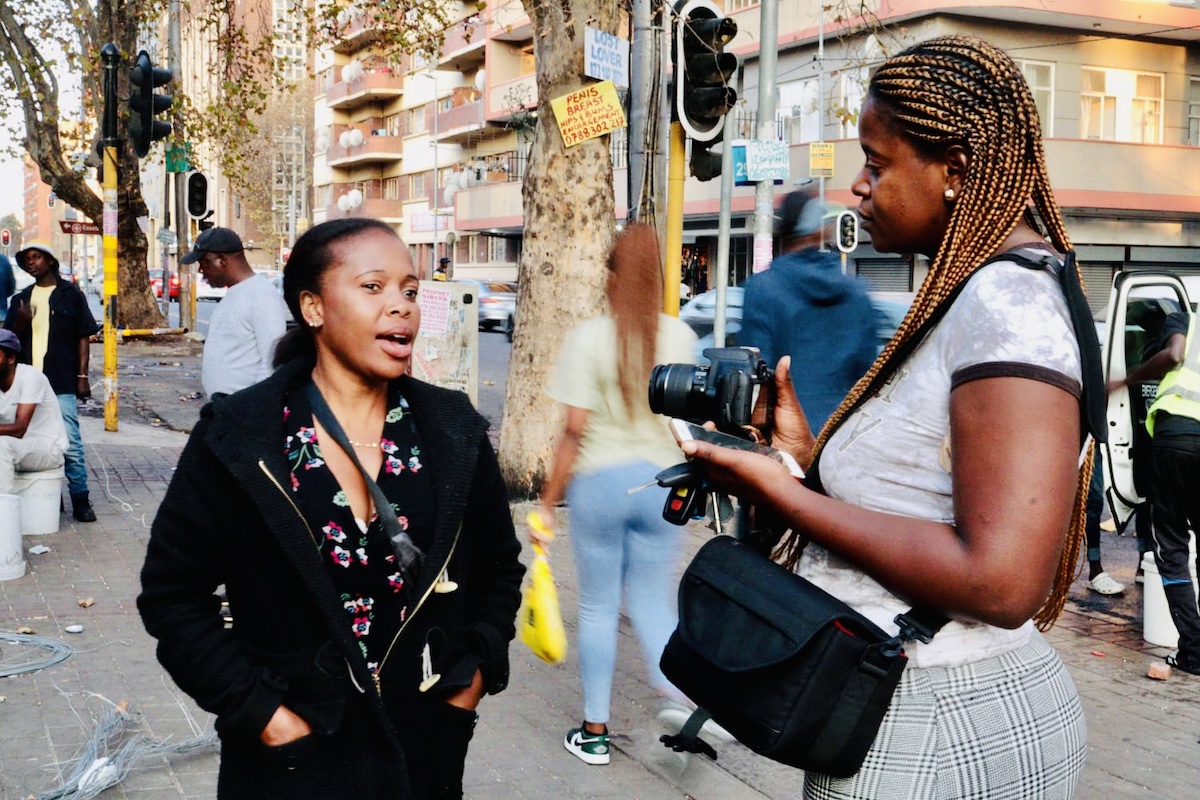Promoting Diverse Voices, Stories, and Perspectives

In today’s world, the news media and the safeguards of press freedom have changed drastically. The democratic protections once available for the press no longer apply. Every beat comes with its own danger, implications, and polarization. Abuse can even be directed not only at the journalist, but their entire family.
With the rise of authoritarian regimes, misinformation and disinformation are also surging. “Authoritarian leaders share a playbook to demonize the press as ‘enemies of the people’ and target journalists with coordinated online and legal attacks,” says Elisa Lees Muñoz, executive director of The International Women’s Media Foundation (IWMF).
Further, women and nonbinary journalists face heightened rates of abuse simply because of their identities. According to research from the IWMF and TrollBusters, more than 70% of women journalists have experienced digital violence and 20% have been physically attacked in incidents seeded online. One-third of women journalists consider leaving the profession due to this abuse, which leads many to censor their reporting.
In 2020, the Bill & Melinda Gates Foundation commissioned “The Missing Perspectives of Women in News,” documenting gender inequities in journalism. The report found that men are the protagonists in 70-85% of news headlines, and political news coverage features men’s voices up to seven times more frequently than women’s voices.
“Women make up more than half of the world’s population, so women’s voices should occupy at least 50% of the news media; that balance is just not happening today,” says Lees Muñoz. “Journalism is a critical pillar in a democratic society, but it can’t be that pillar if the journalism industry isn’t equitable.”
Based on these and other factors that allow journalism to remain male-dominated, the IWMF has created comprehensive programming, training, and funding designed to help support and protect the work and careers of women and nonbinary journalists.
Supporting Women Journalists
The IWMF’s work focuses on four key areas: safety, equity, opportunity, and recognition. The IWMF provides safety training and emergency aid; reporting opportunities; and fellowships, grants, and awards for women and nonbinary journalists. They also provide an Online Violence Response Hub and emergency assistance for relocation and therapy grants for mental health care so journalists can keep reporting.
“We hear firsthand from journalists who have been doxed for reporting on far-right nationalist movements, who receive death threats from conspiracy theorists, who are stalked, and who are afraid of covering political rallies where gun violence is a real possibility. There are huge interests online trying to silence diverse voices,” says Lees Muñoz.
Lees Muñoz gives examples from around the world: Trump targeted April Ryan in the U.S., Modi targeted Rana Ayyub in India, Duterte targeted Maria Ressa in the Philippines, Bolsonaro targeted Patrícia Campos Mello in Brazil, and AMLO targeted Carmen Aristegui in Mexico.
“The global news industry is in crisis,” says Lees Muñoz. “If we aren’t supporting the equal representation of women, then those voices won’t be there, and that is not democratic.”
The International Women’s Media Foundation
Donate now!www.iwmf.org
Senior Development Coordinator: Sara Johnson
(202) 496-1992
Mission
The International Women’s Media Foundation unleash the potential of women journalists as champions of press freedom to transform the global news media.
Begin to Build a Relationship
We know you care about where your money goes and how it is used. Connect with this organization’s leadership in order to begin to build this important relationship. Your email will be sent directly to this organization’s director of development and/or Executive Director.